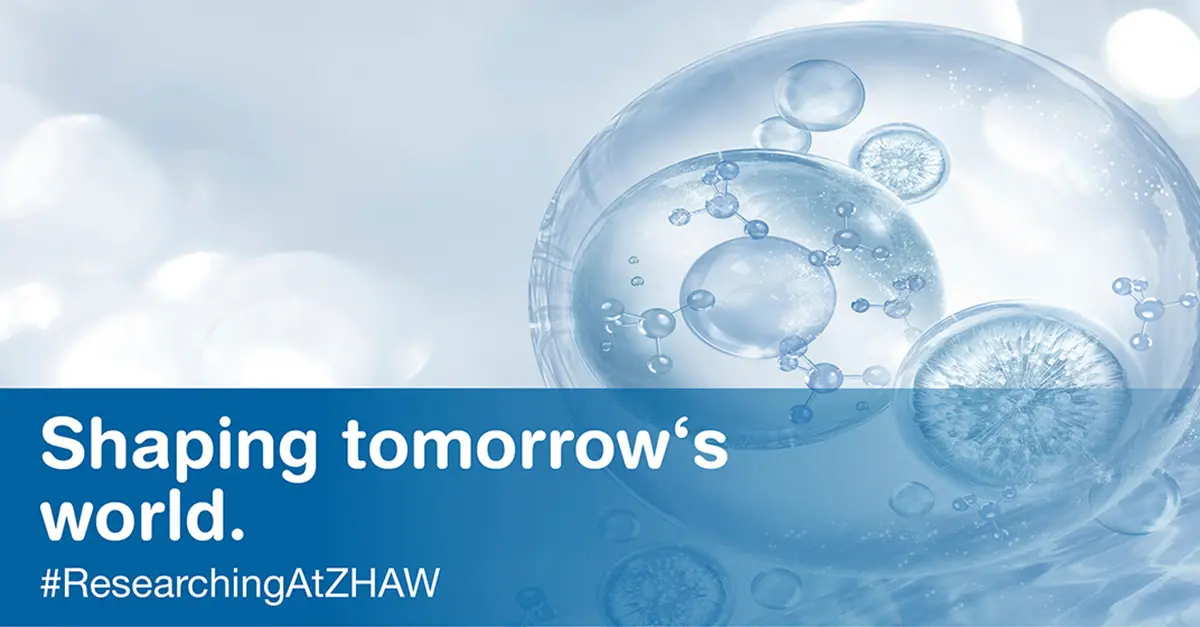PhD Position: Spectro-electrochemical electrode surface characterisation and double layer modelling 100 %

This doctoral thesis is part of the European Marie Skłodowska-Curie doctoral training network “SPACER", which is made up of 21 partners. A total of 17 doctoral candidates will work in this project over a period of 36 months.
School: School of Engineering
Starting date: 1. April 2026 or earlier
Your role
The position is fully funded by the Marie Skłodowska-Curie European Training Network "SPACER". It will be carried out by one doctoral candidate at ZHAW over a period of 36 months. We are seeking a highly motivated PhD candidate to join our research team working on mathematical modelling of electrochemical processes in flow batteries.
This project focuses on developing physics-based models of electrochemical double layers and their spectro-electrochemical characterisation, contributing to fundamental understanding in processes at the electrode-electrolyte interface, which are crucial for developing next-generation flow battery materials. The successful candidate will work on cutting-edge research combining computational modelling with experimental validation. The project involves developing time- and position-dependent models of electrochemical double layers, and parameter estimation methods incorporating electrochemical measurements (e.g. cyclic voltammetry) and electron paramagnetic resonance (EPR) spectroscopy data.
Your profile
- In accordance with the European Union's funding rules for doctoral networks, applicants must NOT yet have a PhD
- Excellent master's degree in computational science, physics, mathematics, chemical engi-neering, materials science, or a related discipline
- Experience in mathematical modelling and numerical methods for ordinary and partial dif-ferential equations
- Strong interest in working in a cross-disciplinary, collaborative project at the interface of electrochemistry and mathematical modelling
- Knowledge of spectroscopy is beneficial, but not required
- Experience in at least one programming language for scientific computing (C/C++, Matlab, Fortran, Python, Julia, ...)
- Good communication skills and willingness to work in collaborative projects with multiple partners and present results at conferences, project meetings and partners
- Very good English language skills (German is not required, but beneficial)
- Self-motivation and the ability to achieve goals independently as well as to contribute effec-tively to the team
- Should comply with the mobility rules in MSCA doctoral networks: in general, applicants must not have resided or carried out their main activity (work, studies, etc.) in the country of the recruiting organisation for more than 12 months in the 36 months immediately before their recruitment date
This is what we stand for
Zurich University of Applied Sciences ZHAW is one of Switzerland's largest multidisciplinary universities of applied sciences, with over 14'000 students and 3'400 faculty and staff.
ZHAW is committed to gender-mixed and diverse teams in order to promote equality, diversity and innovation.
As one of the leading technical universities in Switzerland, the School of Engineering (SoE) focuses on future-oriented topics. 13 institutes and centres guarantee high-quality education as well as research and development with a focus on energy, mobility and health.
At the Institute of Computational Physics (ICP), physicists, mathematicians and engineers work on applying methods and results from basic research to industrial problems. For more than 20 years, the ICP has been developing multiphysics computer models for industrial applications (e.g. in the field of hydrogen technology, photovoltaics or coupled-physics modelling). Together with its partners from science and industry, the ICP develops solutions in applied research and development.
What you can expect
We offer working conditions and terms of employment commensurate with higher education institutions and actively promote personal development for staff in leadership and non-leadership positions. A detailed description of advantages and benefits can be found at Working at the ZHAW. The main points are listed below:
Contact
Dr. Roman Schärer
Lecturer in the team Electrochemical Flow Cells and Energy Systems
Jasmin Strobel
Recruiting Manager
These aspects may also be of interest
Working at the ZHAW
We offer working conditions and terms of employment commensurate with higher education institutions and actively promote personal development for staff in leadership and non-leadership positions.
Mentoring
The ZHAW sees gender-balanced management as an advantage for the university.
More about mentoring
Welcome Center
The ZHAW Welcome Centre gives an overview and general information on living and working in Switzerland.
Working at the ZHAW
Mentoring
Welcome Center
We offer working conditions and terms of employment commensurate with higher education institutions and actively promote personal development for staff in leadership and non-leadership positions.
The ZHAW sees gender-balanced management as an advantage for the university.
The ZHAW Welcome Centre gives an overview and general information on living and working in Switzerland.

